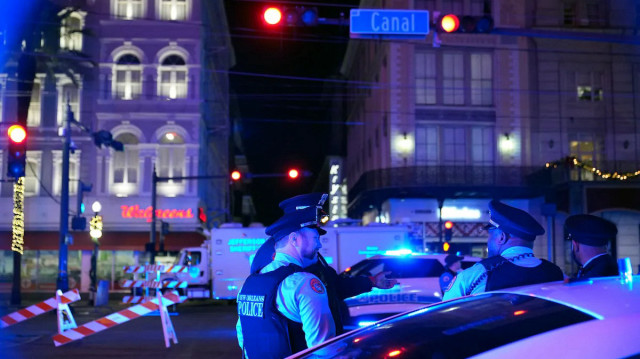
Fears of Daesh/ISIS-inspired violence grew after Shamsud-Din Jabbar's New Year's day attack in New Orleans
Following months of warnings about escalating global threats, the deadly New Year's attack in New Orleans has raised alarms about the ongoing and unpredictable nature of terrorism, according to officials and analysts.
The attack, in which Army veteran Shamsud-Din Jabbar drove a pickup truck into crowds, killing 14 people, has raised concerns about the growing risk of homegrown extremism in the US.
The attack came amid a tumultuous global landscape, including the chaos in Syria following last month's fall of Bashar Assad, which led to a resurgence of Daesh/ISIS operatives in the region.
- Radicalizing in isolation
Avowedly inspired by Daesh/ISIS, Jabbar's attack was not linked to any international operatives, but underscored the ongoing threat from individuals radicalizing in isolation.
Outgoing FBI Director Christopher Wray had long warned of the potential for violence stemming from foreign terrorist groups. After Hamas' October 2023 attack in Israel, he emphasized the risk of similar attacks on US soil.
"I'm hard-pressed to think of a time in my career where so many different kinds of threats are all elevated at once," Wray said in August.
Christopher Costa, a former counterterrorism official, emphasized the danger of individuals acting on personal grievances. "You pick the grievance, and then you'll find the ideology to act on it," reported WPLG TV, based in Miami, Florida.
The New Orleans attack is considered one of the deadliest Daesh/ISIS-inspired assaults on US since a 2016 massacre in Orlando, Florida.
Despite Jabbar's lack of previous law enforcement attention, the attack followed tactics encouraged by Daesh/ISIS. The FBI found bomb-making materials linked to Jabbar in his rental property and home in Houston, Texas.

